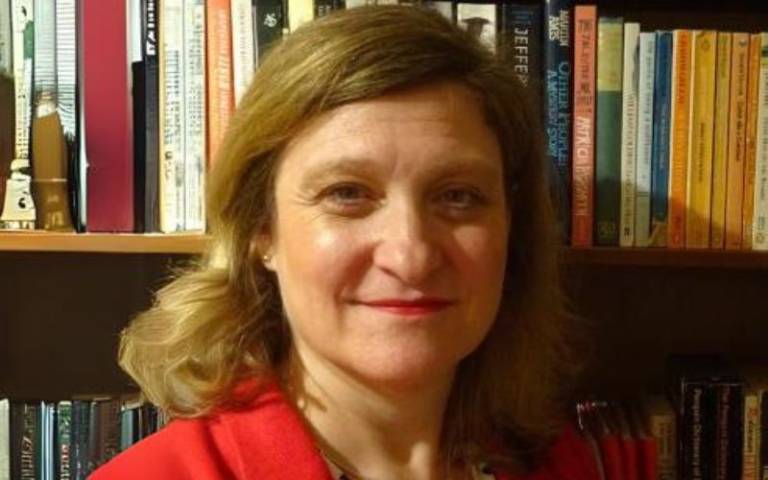Dr Sandy Leaton Gray, Office for AI (DCMS)
Dr Gray worked as a Policy Adviser with the Office of Artificial Intelligence (AI) in the Department for Digital, Culture, Media and Sport (DCMS).

22 August 2022
““Participating in the Fellowship and establishing networks within the civil service has given me the opportunity to raise up the profile of other women in the field. I was able to suggest another highly deserving woman academic in my field for a national honour, something that I don't think could have happened without me receiving an invitation to do so along with a direct and obvious route for responding."
What was your Fellowship about?
For my Fellowship, I worked as a Policy Adviser with the Office of Artificial Intelligence (AI) in the Department for Digital, Culture, Media and Sport (DCMS). My key project was to organise a national AI digital upskilling policy conversation. To achieve this, I produced a key policy document and used them as a basis to organise roundtable discussions with business and industry stakeholders. These documents and roundtables are now the foundation for national policy in the area of non-specialist AI training. We were also able to solve an important question relating to the history of broadband and its social consequences after a key meeting with the national broadband infrastructure team.
What skills and experience did you gain?
The networking during the Fellowship was fantastic. I was introduced to so many really helpful and interesting people who had an interest in the research we are doing here at UCL. I have been able to use some of my own published research to inform their work, for our mutual benefit. It was also an invaluable opportunity to gain insight into the civil service and some of the factors involved in how policy is developed, their ways of working, as well as a knowledge of insider civil service terminology!
What differences did you notice between working in academia and working in the civil service?
From time to time I did miss the collegiality at UCL, but on the whole, DCMS was a very lively place to work so it was very sociable and fun. It took me a bit of time to adjust to a non-university mindset. I had been in academia quite a long time and was used to having chunks of time to focus deeply on tasks and having things more finished before delivering them to project leads. I was also used to taking more personal responsibility for my work, often with limited resources, whereas during my secondment, I had more practical support and a bigger team of people to share projects with.
What words of advice would you have for other academics?
I was an Associate Professor when I took on this secondment and it was a great moment in my career to take a secondment. I developed some incredibly useful management skills and tactics that I was able to incorporate back into my own team at UCL. Doing a Fellowship is really beneficial for one’s career, and depending on what career stage you’re at, it might make sense for you to be placed a grade down, or up, at the host institution and adjust accordingly.
 Close
Close

